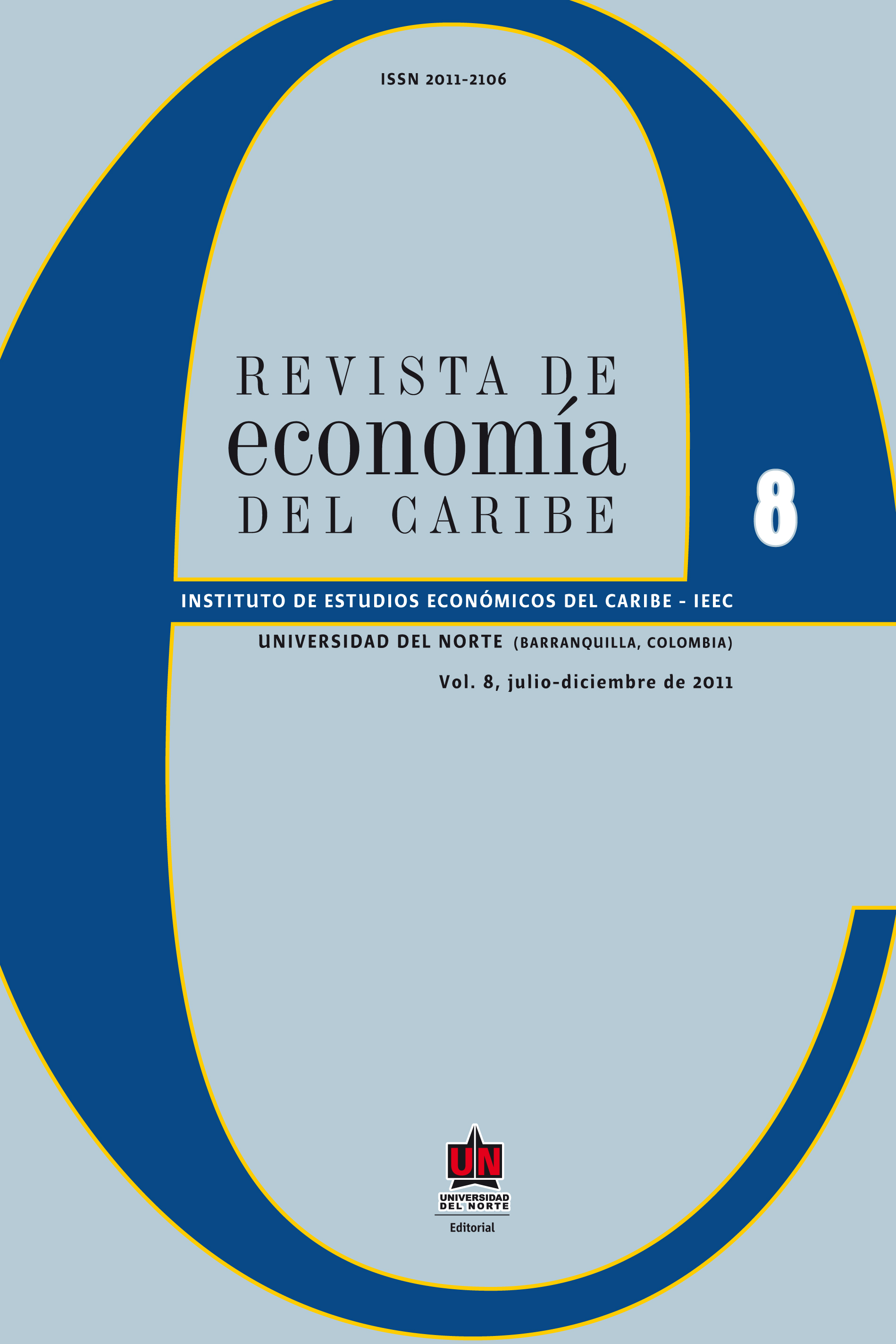¿Son más corruptos los países menos abiertos a los mercados internacionales? Aplicación de un modelo predictivo de clasificación basado en Redes Neuronales
Palavras-chave:
Apertura económica, comercio international, finanzas internacionales, corrupción, redes neuronales, perceptrón multicapa (MLP)Resumo
Los planteamientos más comunes a favor de la liberalización del comercio y las finanzas internacionales afirman que políticas aperturistas tendrán un impacto positivo en la reducción de la corrupción. No obstante la complejidad del estudio de estas relaciones, la mayoría de investigaciones al respecto se limitan a estudios correlaciónales o determinísticos. En este estudio se aplicó un modelo predictivo de clasificación basado en redes neuronales denominado Perceptrón Multicapa (MLP por sus siglas en ingles) que cumple con un conjunto de cualidades estadísticas deseables, con el fin de estimar las características o "síntomas" que presenta un país catalogado como más o menos corrupto.
De las variables utilizadas, los niveles de desarrollo humano (IDH) y los niveles de apertura económica son las características comunes
que comparten los países con niveles semejantes de corrupción, permitiendo clasificarlos correctamente. Encontrándose evidencia de que entre menor sea el nivel de apertura económica de un país, mayor será la posibilidad de ser clasificado en un nivel de mayor corrupción.
Downloads
Publicado
Edição
Seção
Licença
I, ____________________________________________, author of the work and/ or article, adult, residing in the city of _________________, bearing the Identity Card/Passport n.° ______________________, issued in _______________________, in command of his/her/their physical and mental faculties, party hereinafter referred to as AUTHOR, signs the following authorization so the reproduction, publication, communication and distribution of the work can be done, under the following terms:
1. That, regardless of existing legal regulations due to the relationship of the parties to this contract, and any other existing legal presumption, the parties agree that the AUTHOR authorizes the Universidad del Norte, with the purpose of reproduce, publish, communicate and distribute the material called in the Revista de Economía del Caribe.
2. That such authorization apply to the copyright of the work, by any means, known or to be known, the public communication of the work, and the distribution of the work, directly or by third parties, purely educational purposes.
3. The AUTHOR undertakes to inform and declare the existence of this authorization and to preserve the right of the journal Revista de Economía del Caribe to the first publication of the work.
4. The AUTHOR states that the article is original and his/her/their exclusive creation, there being no impediment of any kind for the authorization he/she/they is/are giving, responding thereto by any action: claim, plagiarism or any other type of complaint that might arise about.
5. That such authorization is granted for free.
6. The moral rights of the author on the article correspond exclusively to the AUTHOR, in virtue of which, the Universidad del Norte agrees to expressly and rigorously recognize and respect them.





























